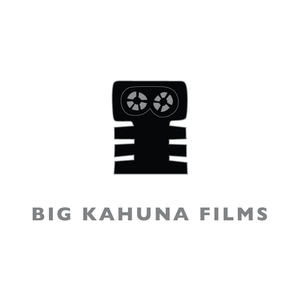
Tarek Miknas: "I’d Spend Weekends Pestering the Creatives to Share Their Letrasets"
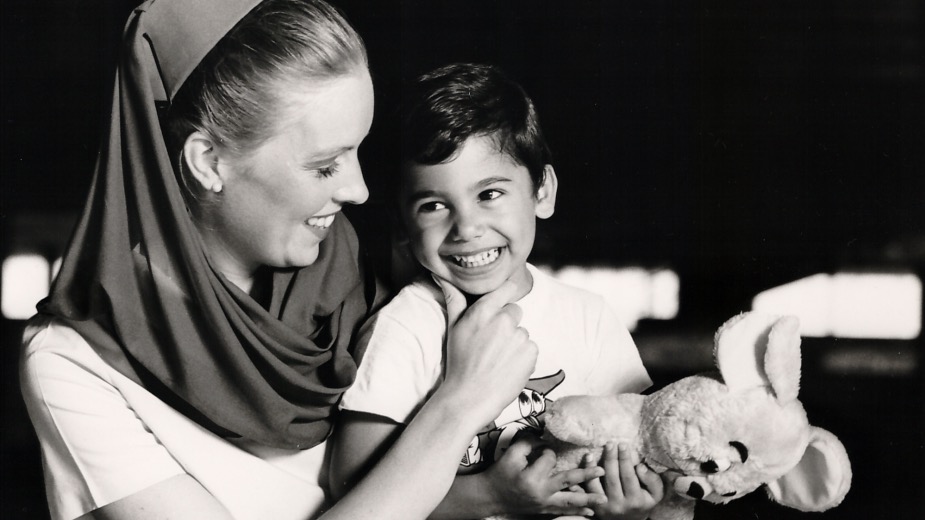
BIG KAHUNA FILMS, the award-winning creative production house based in Dubai and Beirut is proud to support creativity across the Middle East. Over the coming months, as part of their sponsorship of LBB’s United Arab Emirates, Lebanon and Kingdom of Saudi Arabia editions, they are supporting in-depth interviews with creative leaders in the region.
Tarek Miknas has advertising in his bones. As a child, he was immersed in the agency world, pestering creatives, shadowing the photographers in their development labs and even turning up in ads. He describes the business back then as a warm, personable place. As his career has grown and evolved, taking him to the USA for ten years, so too did FP7 McCann. And after a period of ambitious growth, people and product again are at the core of the agency. Under Tarek’s reign as CEO, FP7 McCann, which has offices across the Middle East and North Africa, has become a common fixture at the top of international creative and effectiveness rankings.
And it’s not just FP7 McCann that has flourished – the MENA region as a whole has stepped up to become centre of world-leading creativity, buoyed along by ambition, confidence and culture.
LBB’s Laura Swinton spoke to Tarek to find out about his journey, his thoughts about the flowering creativity across the region and his hopes for 2021.
LBB> FP7 has been on such a roll over the past few years, topping the Effies rankings again and again, globally. What do you think are the drivers of this success?
Tarek> First and foremost, it’s the people we have on board at FP7McCann. Our people are highly motivated, with the passion and the talent it takes to win. Second, it’s having the right partners. Our clients are as highly motivated, talented and collaborative and push us to create at our best. And finally, it’s the laser sharp focus and commitment to doing work that is meaningful and which drives results for our clients.
LBB> FP7 has been behind some of our favourite campaigns of the past year – the Mastercard Astronomical Savings work was an amazing example of a project that was timely, trackable and tactical while also being really creative and brand led. Why do you think that project came together so well?
Tarek> It came together well because we were able to act quickly. You can’t push the timelines when it comes to natural phenomena, you have to be quick. Once the team cracked had cracked the idea, it was absolutely essential that we get it approved and supported by Mastercard as quickly as possible. Subsequently, we quickly engaged with Noon to align on the tech aspects while working closely with our media and PR partners to make sure that we get favourable levels of engagement. Like every agency, we all have drawers full of brilliant unrealized ideas. It’s the ability to get the right people and partners on board to bring them to fruition that counts in the end.
LBB>What other recent projects are you particularly proud of and why?
Jawwy is a mobile plan from STC, Saudi’s largest telecom provider, whom we have been working with since launching in 2016. It's digital-first, works off an app, and customers can personalise, monitor and manage their plan in real time. I’m a big fan of the Fairness platform that we created together. In the latest body of work, Jawwy and FP7 McCann jointly developed The Fairness Show, a parody of anarchic talk shows like Jerry Springer. The show humorously resolved issues of unfairness between friends and family members, turning each issue into a full-blown episodic stand-off, highlighting our platform of being the ‘fairest’ telecom brand.
EG Bank. We were tasked to promote MINT, which is a platform by EG Bank in Egypt, created to serve the youth. If you are between 16 and 29 years old, the MINT Program provides you with a personal banker who will help you save, spend and make the most of what you have. Our task was to introduce the program during the Covid-19 pandemic. With severe production restrictions in place, the team dug up old ‘B’ movies and dubbed them in Arabic informing the target about the product in a hilarious way. I love the fact that the team were able to scrap all the scripts that they had written and find an even more engaging solution working within the restrictive environment.
Saudi Sports For All – SFA is a government entity set up to inspire and promote a healthy lifestyle for all members of the Saudi society through physical activity. Good health and the wellbeing of every citizen is an important prerogative of the government, and we were tasked to help ideate and develop an initiative that would enable and empower this priority – making it meaningful to the people of Saudi. Not the easiest thing to do when parks, gyms and public spaces were closed to the public. As most people in Saudi were looking online for guidance and motivation to exercise, FP7McCann and SFA created an online program and campaign called ‘Baytak Nadeek’ or ‘Your home, Your gym’ guiding people with how-to exercise videos that can be done at home. What inspired me about this campaign is how it crossed into Saudi popular culture. As simple as it was in terms of execution, it resonated, being picked up by major Saudi broadcasters and shared unapologetically across all social platforms. This campaign was a great example of the global McCann mantra ‘helping brands play a meaningful role in people’s lives’.
LBB> How has creativity and advertising evolved in the UAE specifically and across the MENAT region generally?
Tarek> I’ll answer this with a short story. When I first moved back to the Middle East to join FP7 in 2003, I had asked to meet with the Creative Director, an industry veteran by the name of Leslie Oakes. While in his office, we were interrupted by an Account Manager who walked in with a copy of a print ad. With a great sense of urgency, he said, “Leslie, the client hates the ad. They like the copy, so don’t change the copy. They like the visual, so don’t change the visual. But I need to send them back the changes right away.” It would be an understatement to say that I was in absolute shock. Leslie was quick to reply ‘so what do you want me to change, the logo?”
Thankfully, over the last 17 years, I’ve never again witnessed such an awkward conversation. Quite the contrary. Over these years, I’ve had access to so many ambitious talents who would out-work, out-think, and out-care anyone else in the industry every single day to make fame-worthy work. This was/is not unique to our agency, it’s something that anyone in our industry here lives. There is a hunger to be the best. It’s not surprising that within a few years of moving to the region, that Dubai won its first Cannes Lion, and a few years after that, our entire region has stepped up to become well represented across the world’s most prestigious industry award shows.
Today, the talent that we are able to attract and the capabilities that we have been able to build as an industry are on par with the world’s best, if not better.
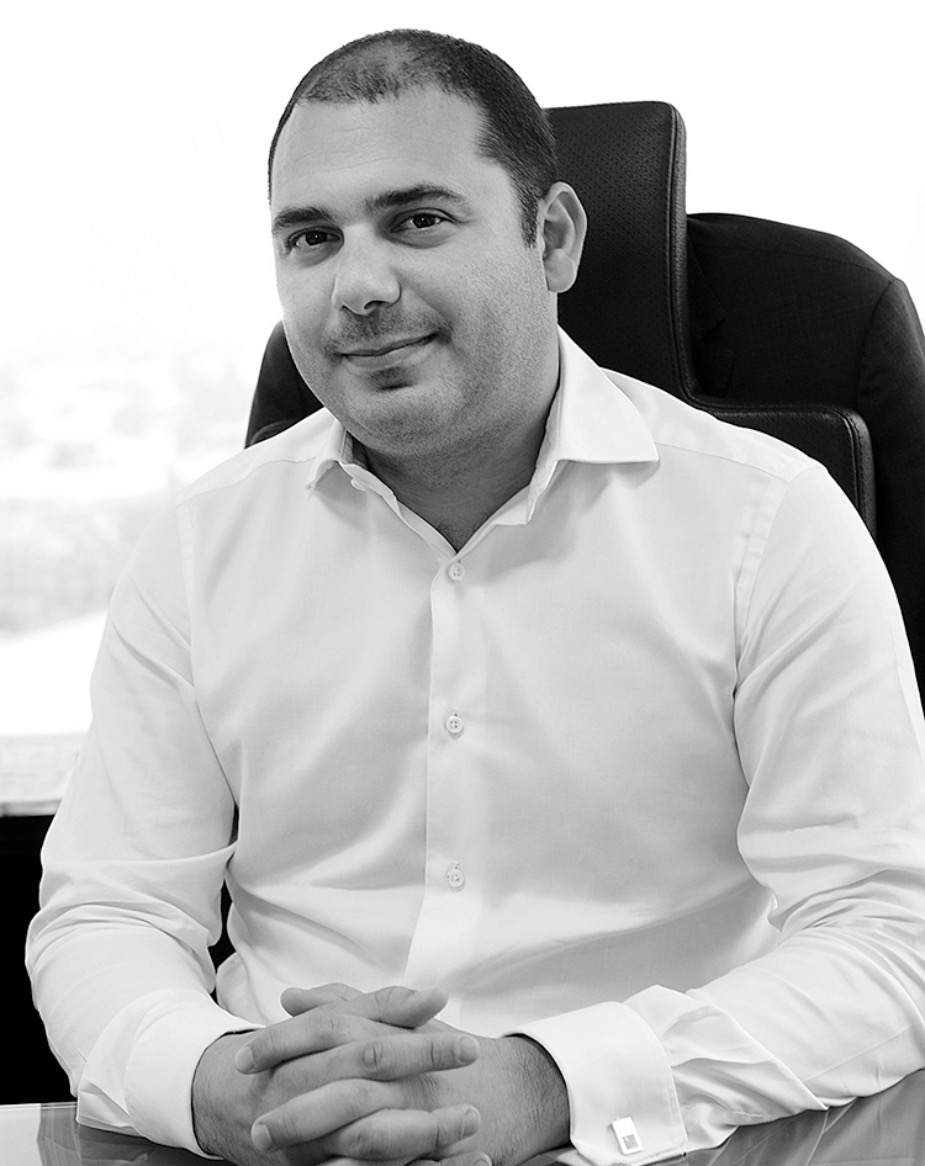
LBB> And how is FP7 McCann evolving in response?
Tarek> Whilst the nature of our business has changed considerably, with more and more budgets shifted toward digital and social, the fundamentals have remained. We remain to be as good as the talent we are able to attract and retain. So, a great deal of our energy is spent on identifying the right people, who represent the highest technical standards, yet fit into our culture of mutual respect and inclusion.
Thankfully, the fundamentals at FP7McCann are well established. Who we are, what we stand for, our values and our collective ambition are well-defined. These have been and continue to be aligned throughout the organization. With those foundations set, our evolution will be about challenging our processes - to be able to deliver at equal or better quality, faster and increasingly, at greater value.
LBB> Your parents started FP7 in 1968. I’ve noticed this really strong family ethic across all of the major agencies in the region. How does that influence the culture in the business?
Tarek> While I can’t speak to the other agencies, I can certainly speak to my experience.
I grew up at FP7. I’d spend weekends pestering the creatives to share their Letrasets, watching our inhouse photographers adjust lighting in the studio, print bromides, acting in low budget commercials, recording VOs, and most memorably, posing on the lap of a beautiful flight attendant for Gulf Air print ad. I’d help my dad carry pages of faxes to his office as he would try to get an early start to the week. And of course, I always had an opinion to share. But in a few words, business was very personal.
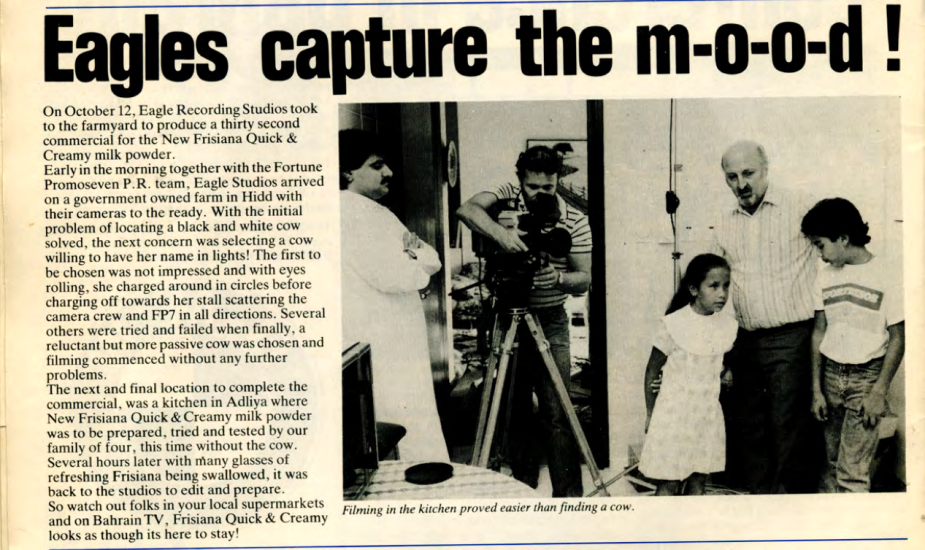
In fact, it permeated our everyday lives at home. I struggle to think of a night at home or the celebration of a birthday or any other special occasion where a client was not among us.
The agency culture was warm. People were happy. And although people were always busy, and I would see them mostly on weekends, there was always a moment for laughter and fun. There were regular staff gatherings, whether it was at our home, or at a public venue - people were always celebrated.
But, every agency starts out different before it falls into the trap of sameness. Or perhaps we got just got too big, too fast. The culture in the mid-2000’s had lost some of that charm. We had become obsessed with growth, and perhaps lost some of what allowed for our success in the first place.
Before I took on the role of CEO, I studied some of the agency newsletters that my mother had saved. In its youth, the agency was consistently pushing creative boundaries; winning international accolades on local client business; venturing into new revenue streams; engaging with the community through sponsorship of theatre productions, beach clean ups, school engagements and the like. FP7 had consistently delivered a superior product that would drive business results, whilst maintaining a culture of positivity and meaning.
And that has shaped the way that I have operated ever since I was a Junior Art Director, 23 years ago. It makes me particularly proud to see that a great deal of our original culture is back.
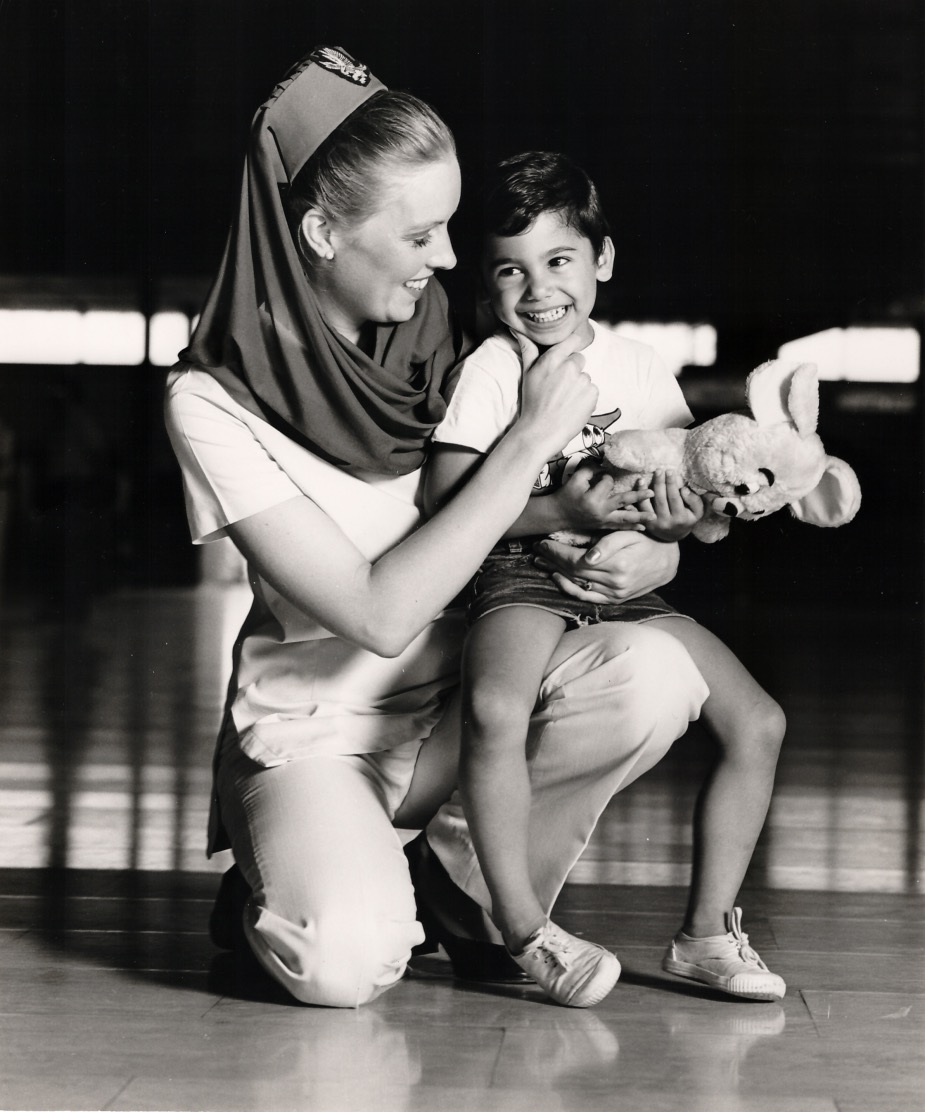
LBB> You studied in LA and started your career in New York – how did that experience shape your view of the industry?
Tarek> It shaped me a great deal. Having grown up in Bahrain, I did not have access to the types of people that I had met throughout my 10 years in the United States. I studied Advertising in LA, and was one class away from a minor in Art (Photography). I was surrounded by creative people who were constantly challenging everything through various forms of expression – from photography to performance art and anything in between. In terms of the advertising scene on the West Coast, this was when Goodby’s Got Milk? campaign launched, followed by Apple and TBWA/Chiat/Day’s ‘Think Different’ campaign. Wieden & Kennedy were killing it with their Nike work as was FCB San Francisco with the Levi’s work. There was an abundance of inspiration.
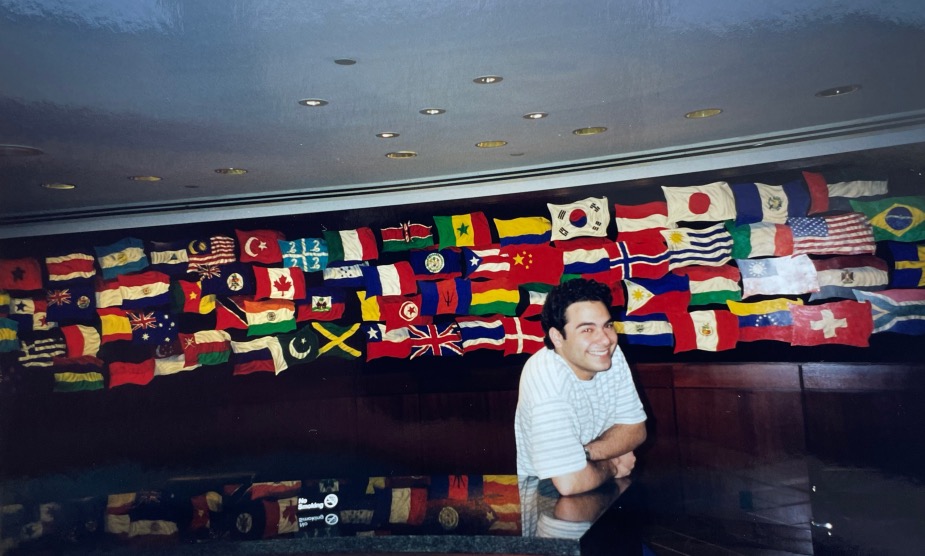
However, a weekend visit to NYC turned into the start of my advertising career at McCann New York. It was 1997, and McCann was at the top of its game having just launched Mastercard’s ‘Priceless’ campaign. Here, I felt the scale much more than in California. Walking into Joyce King Thomas’ office to help out on a Mastercard print ad while she was reviewing edits in foreign languages; attending townhalls where John Dooner would reflect on agency performance across the globe; supporting my Creative Directors on a global Marriott Pitch – it was exhilarating. I felt surrounded by the world’s best and would beat myself up for not being as good as the rest of the department. As a young creative team, briefs were shared with other creative teams, and my partner and I had set ourselves a rule that our ideas had to be selected by our Creative Directors at a rate of 60% or we’d start preparing ourselves for the next list redundancies. That meant a lot of nights and weekends. Culturally and Creatively, the city was an explosion of inspiration. The independent movie scene, the Jazz scene, the art scene, the stand-up scene. NYC was and I’d imagine still is heaven to a 20 something creative.
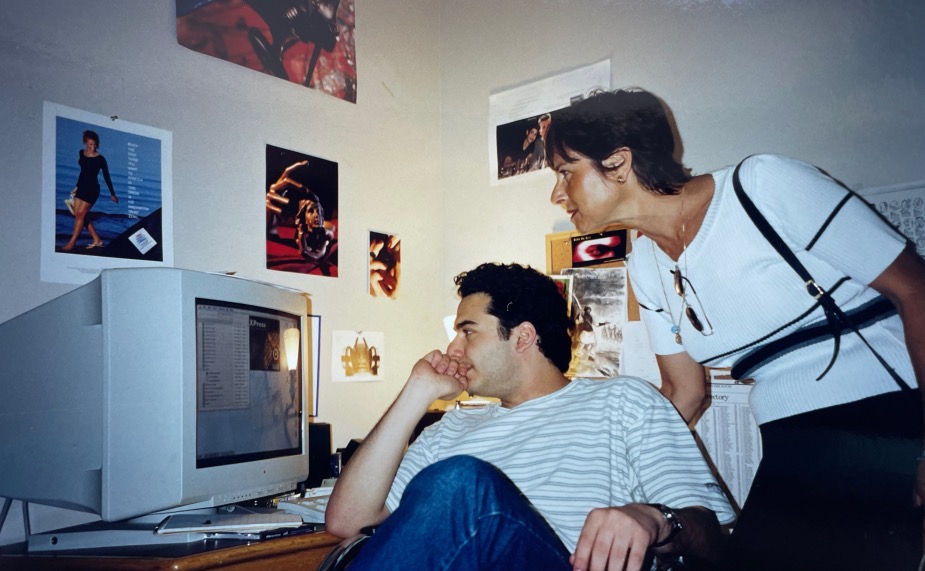
I remained in New York for six years. I wanted to learn as much as I could before coming back to the region. And if I were to come back, and work in the industry, I wanted to be able to add value. Nothing would be more damaging than coming back as the Son of the Boss and all the prejudgement that comes from that biological reality. I returned to the Middle East in 2003, just as my father had handed over the management of the agency to his successor. Besides my ‘Son of the Boss’ insecurity, I also wanted to keep the relationship that I enjoyed with my father as a personal one.
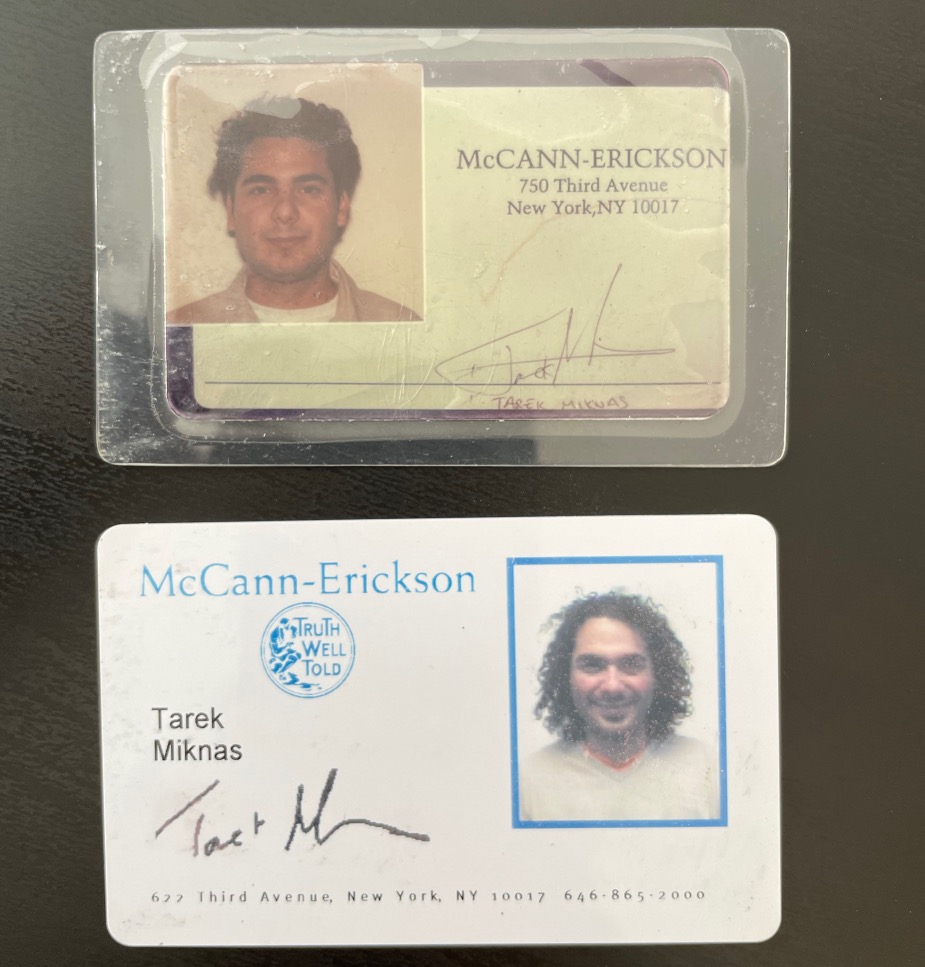
LBB> And did spending all that time out of the MENA region give you a different or more objective view of creativity and advertising in the region and how it compared globally?
Tarek> Of course. We were miles behind in this part of the world. And that is not a commentary on the quality of people in the business, but rather on the maturity of the industry. With that said, coming to Dubai, I was incredibly excited by the energy and ambition of the city. It was a city that was heavily investing in itself, believed in the power of communications and in a hurry to be the ‘best’, ‘biggest’, ‘fastest’ and everything else ‘-est’ in the world. It was just a matter of (a little bit of) time before our industry would catch up to that ambition.
LBB> What do you think are the misconceptions people outside of the region have about it?
Tarek> I’d imagine that people have a very conflicted view of our part of the world. On the one hand, they would have exposure to the glamour of Dubai, the social reforms in Saudi Arabia, the Abraham accords normalizing the UAE and Bahrain’s relations with Israel; and on the other hand, they would have equal exposure to the political instability across a majority of our markets. It’s hard for us to make sense of it all, let alone someone from abroad. But, like anywhere else in the world, we are represented by Liberal and Conservative forces tugging in opposite direction, where what most people want is to be living in an environment of peace and securing and ultimately, playing a leading role in the modern world without the loss of our traditional values and culture.
LBB> You’re half Lebanese, half Turkish and are a Bahrain citizen, based in the UAE, so when it comes to having a personal connection to the diverse cultures in the region you really get it! What advice do you have for international readers when it comes to starting to understand the creative and cultural nuances within the region?
Tarek> When it comes to understanding culture, often you’ll find someone foreign can pick out those magical nuggets with greater ease only because those insights are foreign to them. Often, when you are from of a particular culture, you take the nuance for granted. At least that’s how I felt when I lived in the US. However, when it comes to language, and the depth behind the nuance, it takes someone from the region to authentically understand it. But my response to the question is the obvious one - I’d advise managers to get as diverse a talent pool as possible, no matter what the nature of the business is, particularly if they operate a creative business. The relationship between diversity and creativity is a very direct one.
LBB> It’s been a really tough year for every market – how has the UAE handled Covid? And how has the local advertising industry responded?
Tarek> What a timely question! My wife just received her Covid Positive confirmation the day before yesterday. Within 24 hours, she received a call from the Health Authority advising her on the official protocol for herself and anyone else in the household. They have been diligent, and human in their approach. And in return, people have been very responsive and responsible, the result of which is that while we’re still wearing masks and distancing from each other, we are enjoying much more of the ‘old normal’ than most of the world.
The communications industry responded in a similar manner to the rest of the world. Although ad spends declined, brands continued to communicate. At first, in solidarity to the sentiments of the people and in support of our front liners, followed by more positive messaging due to people’s fatigue with the bombardment of negative information across all channels.
We also have seen new opportunities in creative open up, new channels, new ways of reaching the consumer, new ways of omnichannel adaptations and more. All this, because some of the existing ways of advertising communications were deeply challenged. And as an agency, we did some interesting and breakthrough creative, and more importantly – we all did our best to protect our people in terms of health (mental and physical), safety and financial security.
LBB> It feels like, right now, Dubai in particular feels like a world leader when it comes to marketing that combines activation, tech, data and creativity – FP7 is part of that and I’d say some of your competitors too. What are your thoughts on this? Do you agree and if so, what’s behind that?
Tarek> Indeed. Dubai is certainly well represented across all the reputable industry awards. We have brave clients always looking to do what’s never been done before. This makes it easier to attract the best talent from across the globe, who in turn create what’s never been done before, get awarded/rewarded, and the cycle repeats.
LBB> And looking forward to 2021, what would you like to see from brands and the local industry?
Tarek> 2020 wasn’t the year anyone expected, and I’m pretty sure that we’ll have a few more surprises in the year ahead, so agencies will need to continue to demonstrate agility and speed.
But, as a creative at heart, I would love to see companies invest more in brand messaging. Consumers are less and less brand loyal than ever and this is a huge threat to established brands. A product or service, from a company previously unknown, will appear on a consumer’s social feed, and they would be quite happy to swipe up to try it out without any reservation.
It’s time for strong brands to reassert themselves and reengage. Being meaningful to consumers will play a larger role than ever. People today want to know and understand the ethics behind a company’s supply chain and their position and action in regards to sustainability. This is in addition to navigating a flawless ecommerce experience and in addition to highest expectations of customer service. Which is all in addition to a company providing the best product or service.
We will need to promote those companies with budgets that will remain tight in 2021. But I would hope that those budgets account for some brand advertising supplemented by harder-hitting work that sifts through the searchers, reaches buyers and shifts products off the virtual carts and into homes. Overall, as we have seen during the pandemic, brands will need to resonate on different levels with consumers – to meet them with empathy and understanding through every step of their purchase journey, and to bring back the old notion of believing in a brand and its values.







